Listen via YouTube video if desired
Transcription (was completed by automated process. Please ignore any speech-to-text errors)
[00:00:00.21] Well, hey there, this is Beatty Carmichael, I want to introduce this podcast to you. This is a little bit different than podcast. Normally, normally I’ve got Penny and we’re doing kind of an interview back and forth where I’m leading the interview. This is just a little bit different. I’m actually doing a podcast for a guest channel called Male. Right. I’m being interviewed. And so you’ll hear some voices you haven’t recognized before and just want to let you know that’s what’s going on. It’s a great podcast, some great content. And what we’re talking about is how do you get more business, more real estate sales from the people? You know, that’s your past clients, your sphere of influence, your friends and family and especially kind of focused. Also, if you’re a newer agent, you don’t have much breadth of past clients yet. How do you manage on that? I think you’ll get a lot out of this, so you’ll definitely enjoy it. Let me also encourage you, please, right now. What’s on your mind? Going to subscribe to our podcast channel. Thanks. And have a very blessed day.
[00:00:58.23] Welcome back, folks, to the Mail. Right. So this is episode one hundred and sixty one. We’ve got a guest returning guest. He was on the show in August and Beatty Carmichael Beatty. Would you like to quickly introduce yourself a guide to the listeners and viewers?
[00:01:16.02] I would love to, thanks. So I work with a lot of agents and primarily in the field of helping them get more listings. We work with sphere of influence, past clients and geographic farming.
[00:01:28.83] That’s great. And I’ve got my great co-host, Robert Newman with me. Would you like to quickly introduce yourself, Robert?
[00:01:34.53] I would. I’d love to. My name is Robert Newman.
[00:01:37.05] I’m the founder of Inbound Real Estate Marketing or Inbound Orient Dotcom is is the website. And that’s where I do most of my content and I have a lot of it. So if you want to learn more about me or my company, go check it up.
[00:01:49.14] That’s great. And on the founder of Mail, Riet, which is a science product but gets you quality leads with a sense of using the power of Facebook to achieve that right.
[00:02:00.96] Beatty we have in your bank because it was a fantastic interview, but of your five points, we only couple. That’s right.
[00:02:11.19] So Barfoot so how would you like to restart the conversation and try and cover the three points that we’ve been?
[00:02:20.66] Clubber Sure. I think maybe just a real quick recap of the first two things for those who may be coming in late or it’s been a while since I heard the first podcast and then dove on into the last three. Does that work? Yep. OK, cool. So all this, by the way, is if you want more information, I have a website and a podcast called Get Cellar’s calling you dot net. But what we’re talking about is the five steps to doubling your referrals from past clients and sphere of influence. And what we covered on the first first call is really two things. Number one is how homeowners choose an agent and they usually choose an agent by a concept of trust and top of mind. And the whole idea of getting more referrals and more sales is if you can increase your trust level, not the trust of you as an individual, but you as an expert in real estate. If you can increase that in their mind and so their perception and always be in front of them, which is top of mind, then you start to get more of those sales. The second thing we covered is how do you start to increase that trust? And we talked about the concept of outside perception versus inside reality.
[00:03:31.26] Outside perception is what the homeowner believes you to be as an agent. Inside reality is who you really are. And the challenge is most homeowners believe that all agents are the same, that they stick a sign in the yard, list a home in the MLS and wait for someone else to bring a buyer. And as long as that’s what they believe, then they have no reason to choose you over someone else. But most of the folks on this call, especially if they’ve been around for a while, they know that there are a lot of things that that age that they do individually that adds an incremental level of value to their clients. And if those homeowners on their list understood that value proposition, more of them would refer and choose that agent. That’s the inside reality. So we talked last time about what are some of the things that you can do to to increase that inside reality. And so then so that’s the real quick recap. And then today we’ll cover the next three things and they should go a lot faster.
[00:04:28.53] That’s great. So do you want to start off with number three?
[00:04:31.55] Yeah. So the third thing is top of mind. So if we go back to the main equation, trust multiplied by top of mind is what it’s going to give you.
[00:04:41.37] Approximately how many of the sales and referrals that your past clients and sphere of influence are generating will actually come to you. So the second step at the third thing in the equation is this whole concept of top of mind and top of mind is how frequently you’re positively in front of that. Prospect and I laugh at this because after the podcast call Jonathan, you and I and Robert were talking about what makes for a great touch. And and I remember I was doing this call, it was with a large brokerage. They had like two hundred and fifty agents. And I was the broker within the meeting and a number of agents there.
[00:05:22.72] And I was asking the broker to set aside or all touches the same. And he said yes. And I was kind of startled because all touches aren’t the same. So here’s what I like to propose. This is what I suggested to him. I said, So you’re telling me that getting an email that says, you know, it’s summertime, hope you have a good summer, has the same level of value as if you, as an agent, walk up to my house and bring me some homemade chocolate chip cookies and say I was just thinking about you and want to drop these off. Say touches are not all equal. Does that make sense? Are you all following with me? Yeah. So so the most important thing when you do touches you, you have to understand that what you’re looking for is those touches that will add value to your client, to your past clients, to your sphere of influence, and not just any touch.
[00:06:15.94] What usually happens in this day and age is most agents, they they say, OK, I want to say in front of someone. So I’m just going to go get an email campaign and I’m going to send them automatic emails. And I had this client of loan officer. I recently bought a house. And so I get these emails from him and he’s trying to do the touch system with me and they are so stupid and such a nuisance. I actually created a folder on my computer called Stupid Email Campaigns, and every time I get one of those emails, I slide it over in that folder because let me see if this makes sense. Robert and Jonathan, they all get a lot of emails every day or just a few.
[00:06:59.34] Sounds a lot, right, more more than I can count. Yeah, more than you can count and more than any of us really want, and most of them are junk. So what happens is when you send an email like this loan officer does to me and I get that email, if it doesn’t add value to me, then it’s not positive. It’s neutral at best or negative at worst. And for him they’re negative.
[00:07:23.25] Ok, so every time I get an email, I refuse to even open it because I’m so offended by it. Think about that when you’re targeting your personal clients and your past clients and your sphere of influence and others. Are they going to be offended because it adds no value to their life? And if that’s the case, you’re actually potentially hurting yourself. What you want to do is look for those type of those type of touches that will add value. And this is where we’re talking after the podcast. A client of ours, he sends out a 52 emails a year every single week to his database of about three hundred fifty or five hundred folks. And what’s interesting is when he misses a week, he gets emails from his clients saying, hey, Stuart, I didn’t get the email. Would you send it? OK, they love it so much that that what this is showing is it adds value. And and so what he’s doing is real simple. He’s taking what I call a human interest story, for example, one the ones that I remember, it goes like this. It’s written in the first person. And the person says, you know, I grew up and my father was a merchant. We lived on top of the store. And as I was growing up, I loved mathematics. And then my father introduced me suggests I go to a music studio and learn music. And so I did that and I really enjoyed it. And when it came time to go to college, I didn’t know whether I wanted to pursue mathematics or music.
[00:08:52.92] And as I went to my father and my father gave me some wise advice, he said, Son, you can only sit in one chair. In other words, don’t be a jack of many, be a master of one. So he said, I chose music and within eight years I was playing in Carnegie Hall. A few years after that, I was playing in front of the Queen of England, was playing in front of the pope. And he goes on and you’re reading the thing going, Oh my gosh, who is this? And it was signed Pavarotti. OK, so what happens is, is these human type of interest stories. And that’s just one concept. All the other things you can do that create value. But what happens is people are drawn into it because they like the story, because it adds value, it’s encouraging. And so when you focus on item number three to double sales and referrals, you have to focus on top of mind items that add value. So drippy mail campaign that adds value is one thing you can do, but there are other things you can do, too. One is going to be for if you’re in a sports area, those magnets that go on the refrigerator, that show off the sports schedule of the local teams, you put your name and face on it.
[00:10:06.51] Because now what happens is every day, multiple times a day, you’re in front of the housewife, you’re in front of the husband or the wife and the husband and and you’re in front of the kids. They see your name in the face all the time. And so you’re constantly top of mind. There’s another you can do magazines. So I think there’s something called, believe it or not. What does it have all heard of? It’s called like Guns and Roses, Guns and Flowers or, you know, the magazine I’m talking about. It’s really a that I’ve heard from a lot of agents.
[00:10:38.76] No, but it sounded like your head in the direction of Guns and Roses, which almost almost gotten roses. But it’s not it’s not Guns N Roses. But it’s really interesting because it takes it’s it’s has something for the guys, the guns in the back as they would. It would be. And but there are all kinds of magazines that you can send out, you know, maybe six magazines a year there, the coffee top magazines that you can that you’re branded on the front in the back. But these are the things you want to look at. What type of touches can you do that add value, another type of touches, that personal touch of just making a list of and systematically going through your list and dropping off a gift once or twice a year and just saying, I really enjoy our relationship and thanks for being such a great friend. So that’s how I. We’re three. OK, just give me a second though. Yeah, we’re that’s item number three. That’s step number three or item number three.
[00:11:33.09] Ok, so step three in your five step process by second I haven’t had my coffee so I’m trying to, I’m trying to. I’m still on my brain is still on getting us back to where we stop.
[00:11:44.88] Ok, great. So first step is understanding. That is trust and top of mind. That drives everything. That’s step one. That’s step one. Step two is how do you build trust? That’s what we talked about last week. We’re. A couple of weeks ago on inside reality versus outside outside perception, got you. The third step is how do you build top of mind? And this is at least right now talking about right now that add value, but there are typically low cost. All it is, is that value touch. Gotcha. Gotcha. So that’s step three. And then we have step four and step five, right? That’s right. So step four is if you think about this, when you look at those people, if you were to make a list, let’s say, of the people that you’re touching, your past clients, your sphere of influence, other people that you’ve met somewhere within that list, there are people that are going on the market every year. On average, there’s about a five percent turnover rate, plus or minus in the United States. So if you have a list of two hundred people, that means that it’s probably 10 of them are actually going to sell their home this year. Think for a moment, if you could wave a magic wand over that list and identify which of those 10 they were, if you knew who was thinking about selling before any other agent knew, then it would ensure that you got that sale before they went to someone else. OK, makes sense. The question then is how do you do that now? In email marketing, we find it all the time. You send out an email with an offer, they click on the offer, they come back to a website and you track who clicks. OK, it’s called a click through rate. How do you do the same thing with your personal client list?
[00:13:32.45] Well, number one, if you are sending out emails, you can send out an offer that only someone who’s thinking about selling would be interested in that someone who’s not thinking about selling would not be interested in. This is where you’ll find most agents gravitate toward the what’s your home worth? But what’s your home worth? Concept has pluses and minuses. So let me ask you guys, are either one of you thinking about selling your home in the next 12 months?
[00:14:00.90] No, no. OK, so if I come up to your door and I said, hey, I’m in the neighborhood and I’m telling people exactly what their home is worth, would you like to know what your home is worth? Would you want to know what your home is worth? No, no. OK, I would guess my most valuable asset or second most valuable. So. So what happens, though, is, is if you’re simply asking do you want to know what your home is worth? You’ll get some people that say no, but you’ll get a lot of people that say yes. The challenge is just because they say yes doesn’t mean they’re most likely thinking about selling because they’re just curious. And so what you do is if you want to identify who’s thinking about selling, you have to narrow your offer down more specifically so that it only appeals to the person who’s actually thinking about selling and what we’ve started to do in this realm as we started testing different messages. And here’s the basic message that starts to work. OK, if you’re thinking about selling your home in the next 12 months, then dot, dot, dot, whatever your offer is. So in this case, it might be if you’re thinking about selling your home and the next six to 12 months, your first step is to figure out how much you could probably get for your home.
[00:15:18.74] So you know how much money you have for the next house. I made it really easy. Click the link below to go to my website to find out exactly or find out approximately what your home could be selling for right now. OK, so you can do that with an email campaign. You can do that with a postcard. So a lot of times you’re sending out postcards as part of your touches as well. And so you can send them to either to a trackable website. What we do is we actually use a link very similar to a link in an email. So when they go to that website that we put on the postcard, it pinpoints specifically which address they’re responding from. So now we know exactly which homeowners are responding. But even if you don’t have a technology like that, you can use something like a call capture number. If you’re thinking about selling your home, you want to find out exactly what it’s worth. Call this number right now.
[00:16:07.76] So you pick up the phone, they call a call, capture a number toll free number, and it captures the caller I.D. The key with all of these processes is you have to have a way to identify the person who responds. But here’s something interesting. When I ask our client, what is it that homeowners want to know before they sell, they say there’s only one thing. How much can I get for my home? Well, we’ve tested that. And that’s not the only thing.
[00:16:33.50] In fact, that’s I actually item number two, there’s one more item more responsive, far more responsive than we found with from that offer. And is the simple offer, the curiosity of being able to get the home sold immediately and it comes out in different venues. But the simple way to understand this approach is what I call the I have a client approach. And let me give you the back story on this. One of my friends here in town was telling me the story of a buyer client he had that wanted to buy on this particular street. And for about a year or so, he couldn’t find the find a home. And there weren’t many homes coming on the market. So my friend Rob, the real estate agent, said, well, let me see if I can help. So you wrote up a letter and said, Dear homeowner, my name is Rob. I’m a real estate agent. I have a client who’s wanting to buy on the street and he hasn’t been able to find the right home. If you’re thinking about selling this year, would you please contact me and let’s say if your home is a fit, OK, so he puts it out on all these homes.
[00:17:34.46] He picks up a listing or two right off the bat, just from that. They may not have been the right match for his client, but it got him a listing. And so we started to take this concept. I called the I have a client and we started to modify it. And this is what you can do on your own as well. The whole idea behind this is. That homeowner having the expectation that they can sell their home immediately. So here’s two ways that you can set this up for your past clients list past clients sphere of influence or even just a generic list. What is your buyer database? Most agents have a database of active buyers. OK, so maybe that database is one hundred and fifty three active buyers that you have. So now you can go to your list of people and let’s say you group them by by suburban area.
[00:18:26.71] Ok, Vestavia, Homewood, Mountain Brook, those are the suburban areas in my area or even more narrow. And then you can send those clients a personal letter or postcard or even just an email that says, hey, John, I’ve got a I’ve got a hundred and fifty three active buyers on my list who cannot find the right home right now. And I was wondering if you’re thinking about selling your home in the next six to 12 months, because if you are, I might be able to get it sold immediately, even before you put it on the market at whatever point you want. Can you contact me and let me know?
[00:19:03.15] Ok, so now all this is doing is this is shaking the bushes to see who’s going to respond. You can do the same thing in a postcard. You can do it in an email, you can do it in text message. But now it can take that list of people, you know, and start to identify who is thinking about selling those who respond. Then you start to follow up and you’re you’re assured at that point more than likely getting the deal because now you can engage relationally with them. So those are two ways to identify sellers. Let me share one last thing that we found. So in our testing, we’ve done about 20 one split AB marketing test trying to identify what makes this work. And we found one other thing that causes a homeowner to who’s thinking about selling to respond. And that is what I called the free report. OK, so let me see if this makes sense. I’m thinking about selling. I plan to sell for probably three to six months. I’m starting to fix up the home. We’re looking at other homes. But it’s not until I actually ready to put the home on the market that I call the agent.
[00:20:11.51] Ok, but in the end, this time we call it in the marketing world. We call this the educational spectrum where they’re educating themselves during this period of time. If I offer information to this homeowner that the homeowner is interested in, I can get that homeowner to respond. So, for example, here’s a a simple headline concept that if you’re thinking about selling your home, here are four secrets that practically guarantee buyers will pay up to twenty seven thousand dollars more for your home. And then the body copy would explain a little. It’s a free report. It takes five minutes to read. And I’ll get you more money above the current value of your home right now. Visit my website, click on this link, call this toll free number, whatever your call to action is. And so now when you come up with those type of things, again, only the person thinking about selling will respond. Those people who are not thinking about selling will typically ignore. So this allows you to start to identify sellers within that list. And then your follow up is really easy.
[00:21:08.27] You pick up the phone. Hey, John, this is Beatty. Hey, Beatty. Hey, I see that you requested my free report. Are you guys thinking about selling it anytime? Say, OK, hey there, your friend. You can be right up front and now you’re engaging in the conversation. So that’s number four. Step on how to increase double sales and referrals from past clients.
[00:21:29.84] And by the way, this whole concept of seller leads, before I forget, if you want more information on my website, you can’t buy anything on my website. You get sellers calling you darknet, but there’s a search bar. And if you want to get sellers calling you dot net and type in the search car seller leads, then it’ll give you all the different trainings that we have out there on things that you can do, things that we have learned and things that will increase your overall conversion rate.
[00:21:56.57] So the first thing and doubling sales and referrals is especially from your your personal list, OK, is you have to stay personal. And so this is where additional personal touches come in, whether it’s a handwritten note or a personal phone call or dropping off a gift.
[00:22:13.95] Ok, anyone who has referred you business at any time, you need to be at least once, if not twice a year, dropping off some cookies or just something that that keeps that relationship warm and alive. OK, in between there, a quick phone call. And and it’s not a self-serving phone call. Hey, this is Beatty. How are you doing? Hey, are you thinking about selling? Do you know anyone who is, you know, stay away from that stuff? What you want to do is simply be a friend. Hey, you know, I know you’re interested in ours. I was just going through this magazine and I wanted to send you this clipping on on how to do flower arranging because I think you’d really enjoy it. It’s something that’s personal, that just adds value to them, that keeps you in front of them. A handwritten note and it’s one of those things that I recommend at least twice a year, if not three or four times a year, just a phone call, a handwritten note. So now you have all of these things combined in this great big cauldron. OK, I’ve got the marketing that I do that educates them, why they should choose my inside reality. I’m doing a number of things that are just keeping me always in front of them. Top of mind.
[00:23:26.60] I am using good marketing to identify those people, thinking about selling before they come on the market. And then I’m doing personal touches. And when you put it all together, you’ll find that your sales will start at sales and referrals will start to double and triple to as many as at least 17 sales a year. From every one hundred of your personal contacts that you’re focused on, because that statistically is is what’s out there. So that’s the five steps on how to do it.
[00:23:57.82] That’s amazing, Godi comments, Robert.
[00:24:00.04] I do so one of the things I wanted to comment because and John, you’ll love this because because you’ve done a deep dove into how to work a list. And I really appreciate that, Beatty. I just want to add for a lot of our clients that part of doing this in general is number one, you have to you have to develop an email marketing list and then you have to segment your list, because I noticed in your comments, Beatty, that you had a number like you were you were basically referencing segments of a marketplace. In other words, there is a difference between somebody you shaking hands with and done some business with or driven around in your car for three hours showing homes. But they didn’t buy from you versus a Facebook lead that just barely even saw one of your landing pages and input their name. So you should have two separate parts of your email marketing list, one that are people that you really know that you’ve actually contacted and and at least spoken to. And then another one where it’s just all the people that have been caught in your marketing net through all your various methods that have some point or another, sent you an email email list. I feel like your strategy that you’re outlining here is going to be really, really effective for bucket number two, the people that you know, that you’ve contacted and that you have a relationship with versus people. Number one, not to say that they can’t be valuable, too, but I would say that that targeting your efforts would go would be very helpful.
[00:25:39.31] You’re very correct. So if you were to take that segmented list, I would segment in the following three. You have two segments of the people that you’ve met. And when we talk about someone that you’ve met, it’s if they were to see you on the street, they would call you by name. Hey, Beatty. How are you, Joe? How are you? How are the kids? That type. So when you have that group of people, I would then group them into two groups, those who are past clients and have referred to you or very close to you. The second group would be those that don’t fit in this group. And then you have that third group you’re talking about that is maybe they’ve seen you on Facebook, but they don’t really know you while the concepts work across the board, because this is all the these are the process of how does someone make a decision? The real focus and the effort is is more profitable when you focus it on those people who already trust you. And here’s one other study. I’ve actually seen this in three different data points, and they all pointed the same direction. And we talked about this after the call last week. I mean, last time, and that is someone who has met you is ten, eight to ten times more likely to do business with you than someone who has never met you. And so that’s where you want to focus your efforts in this realm of past clients and sphere of influence is to focus in that group because of the high likelihood of repeat business and refer business to like, um, before we went live, you know, you said you started in the industry. I think I think you say to 012 in real estate. I did.
[00:27:18.97] Yeah.
[00:27:19.78] Well, if you’ve learned over the few years that surprised you about the industry, um, about the industry, I think the things that kind of surprised me is, you know, real estate is a sales business, but most realtors don’t realize it. Most realtors believe that. And this is very much a generalization why the realtors come in to the real estate business, because they love people and they love homes and they think it’s easy to sell a home. But what they don’t realize is you’re in hunter sales. You got to hunt and get the next sell. And if you’re not aggressive in doing that, then you have, you know, as a saying, timid salespeople have have thin kids, OK? You know, you just don’t get a whole lot on your on your plate. And one of the things that has been really surprising to me is how few realtors have any sort of marketing fund. They don’t do anything strategic in marketing. They just think it’s going to come to them, but they don’t really plan for it. And those that I see that really grow fast and every single case, they treat their business as a business. They put money aside for marketing, marketing, advertising and everything else to drive in leads because without leads, they don’t have a business. I think that’s the biggest thing I’ve learned.
[00:28:49.46] Yes, I totally agree with you there, I think it’s but to be fair, I’m not that surprised because I think a lot of people have like the two things you pointed out there, people, people, they like homes. They concentrate on passing the local exam, breast exam, and then they find a Prokop because in most areas, you dope, right? You got to be part of the brokerage ship and the broker. Doesn’t really do. Which is a bit sweeping in some ways is changing, so do a great job of explaining the realities about you got a market and got to feel that far, too. Would you agree that?
[00:29:38.22] I would. You know, there’s a you have kind of two mindsets in the brokers. One mindset is I’m only going to bring on board tenured agents who don’t need handholding and I’m going to make a small margin offer, lots of volume. The majority of the brokers, though, they look toward the new agents who come in and come out. They know they come in. They’re going to pick up a few cells from their family and friends and maybe more. But they make a larger margin on those, and that’s where the profit is. So there’s a a drive to recruit new agents to get them through the training and to keep those margins. And I don’t think it’s wrong. I just think it’s a different business model in that business model. There really is needs to be in some companies do a great job of really focus on training your agents and getting them up to speed and handholding them and helping them be successful. But I think most agents just don’t really understand what it takes to be successful when they come into this business.
[00:30:43.05] I want to I want to guys. I want to I want to dovetail for a second because because I agree with everything that everybody just said. But I also want to add an additional thought.
[00:30:53.40] So a lot of the people I think that are going to be reviewing podcasts and taking their time to listen to three guys like us are probably going to be people on the newer agent spectrum side, as opposed to the brokers that have 20 years experience, because frankly, in my experience, those 20 year guys, they don’t have a lot of time to listen to podcast that say that they won’t. It’s just unlikely their assistants might, their office staff might, but them not so much. So for that younger audience out there, that or not younger necessarily, but but the people with who are newer into real estate, I’m going to make a suggestion to you.
[00:31:27.03] Everything that the Beatty has been talking about is a great way to take ownership of your customers. So the way that real estate oftentimes works is either through your personal marketing, like your friends and family, like Beatty just touched on, or the fact that you have to spend countless hours waiting on a on a showroom floor floor is what I’m going to call it. You have to go into the office basically on commission and sit around like a car salesperson and wait for somebody to walk through the door. And when they finally walk through the door, that is your lead. If you happen to be the person that is on the up side of the rotation when you’ve gone through so many hundreds of thousands of hours to develop personal connections, personal contacts, it is ridiculous to me as a marketer that you don’t take that small extra step and then own the contact. And how do you own the contact? Everything to be talking about today. That’s how you own the contact. You create a personalized marketing structure or system such as emails and things like that that separate you from everybody else so that once you shaken that hand, even if you don’t do any business that particular day, you then own the relationship with the client. And honestly, you can be in real estate a long time before you have even a thousand of these people on that list of people that you’ve met in person made an impression with. So. Treat, take, I mean, my opinion, it’s just my opinion is that we should take this topic, everything that we’re talking about very seriously is segmenting of a list, the ownership of a lead. Why in the world would you not spend an extra 10 or 15 hours like talking to a guy like Beatty, listening to a podcast like this, figuring out a strategy? What happens when you shake your hand? You don’t get the deal, but you did get a percentage of the relationship because you can turn the 20 percent that you got into one hundred percent and get the next transaction and the next transaction and the transaction after that.
[00:33:29.90] And the other thing that people do, I totally agree with you, but I just want to see what you think and bring. The other thing is a lot of people say, you know, I have no homes to sell.
[00:33:43.76] It’s a chicken and egg situation. And in some ways they’re right. But a lot of potential buyers, they don’t know that you’re not the actual selling agent. So you can you can advertise other people’s properties and then bring that potential buyer to the agent and negotiate maybe some revenue for bringing that agent, that potential buyer or, you know, what we have covered over quite a few weeks doing some advertising or doing videos that attract sellers to you. And in some ways, because of the Internet, doing these things have become a lot more easier. Would you agree with that? Beatty Beatty?
[00:34:42.86] I would. I think there you know, if we look at a brand new agent and kind of spring boarding from both your comments, that brand new agent, if you think about this, an average person knows between two and three hundred people, if we were to limit that to two hundred people. And statistically, what we know from a study that we talked about in our first call is that if you’re touching your less, well, then the average agent in a study after they cross a threshold, that average agent was getting seventeen sales a year from every one hundred people. If you know two hundred people, you’re touching that list. Well, then that means has thirty four sales that you’re potential. If you look at that average new agent who’s only doing six or eight sales a year, the increase is huge simply by what Robert’s talking about. Carve out those people that you know who know and trust you and really nurture that relationship. But then there’s one other thing you can do as a new agent and you don’t have any homes to sell. Go find agents in your office who are who have listings and ask if you can do open houses in those listings and go knock on the doors, introduce yourself, work out an open house later today at two o’clock. Can you come and watch what you’re really doing when you’re knocking on doors is you’re looking for those people who will come visit the open house.
[00:36:07.37] Because I’ll tell you about my wife and I. We’re not about to waste our time going to an open house unless we’re thinking about selling ours. So those people that you get from the neighborhood are likely thinking about selling. And so simply by manning the open houses, you can pick up listings that way and jumpstart your business even more.
[00:36:28.16] It’s just fantastic because I just do not understand also, if you’re a bit more established, you should get some by junior agents to work with you and still do open houses, but not run them yourself, obviously be under your supervision because it’s just a great way of building your database in that third area. I agree with you, but you should split your listing to free parts, but it’s just a great way of getting increased in your database into that part, free of your list segmentation. So even if you’re more established solution, you should keep running open houses. Not to say not to yourself, get by, get a buyer, junior agent, somebody new to do those and treat them really fairly. But and that’s why if you’re a new agent in your that buyer agent, a more experienced agent has an arrangement with you. That’s why you should agree to that arrangement, because what just buy is just said. What do you reckon, Robert?
[00:37:44.39] I agree. And guys, I’m going to make a strange, strange request here. John, I’m going to ask if we can wrap the show up.
[00:37:51.20] It’s not it’s I have something that I need to cover with you, not in the recorded version of the show. And I’m on a time clock today.
[00:37:59.76] Yeah, sure. No problem. So we’re going to close the show down now, folks. How can people find out about you?
[00:38:07.73] Go either to our website, get Sallas calling you dot net or if you want more of this type of content. We also have a podcast. Get Sallas calling you and you just search for it online.
[00:38:18.44] That’s great. We’ll see you next week, folks, by thanking.
P083

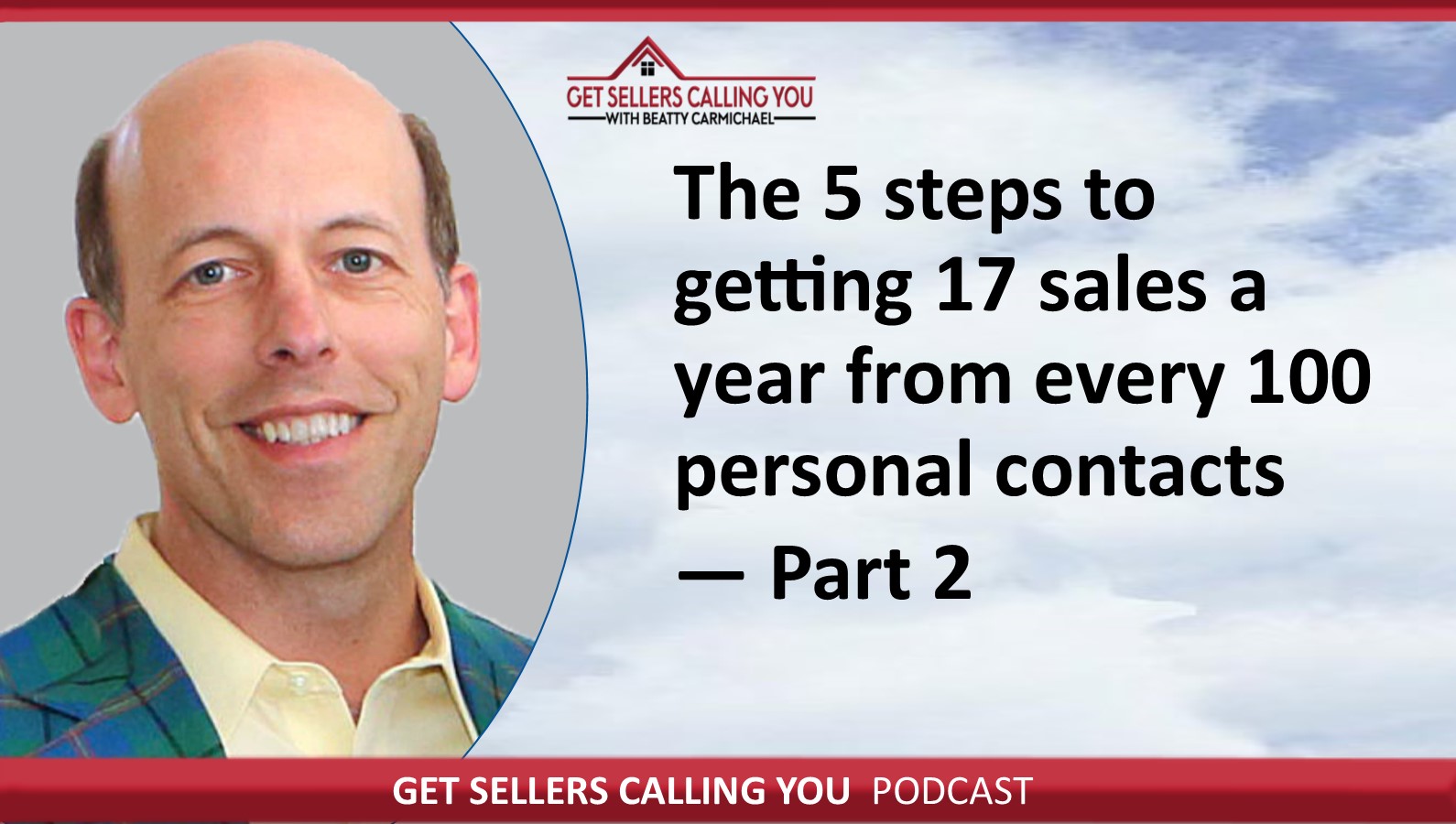
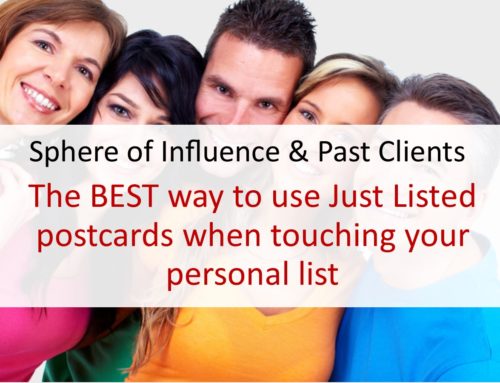
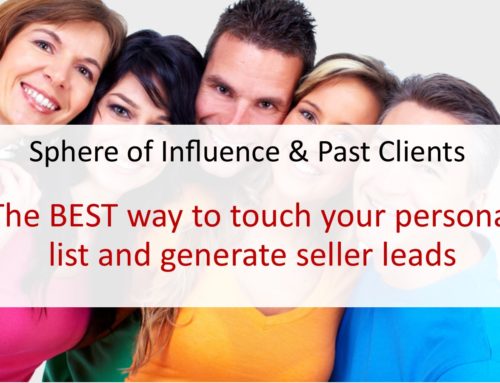
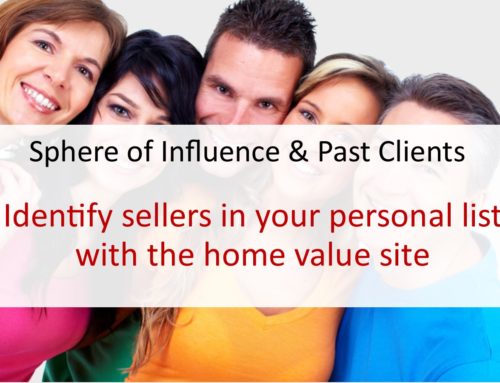
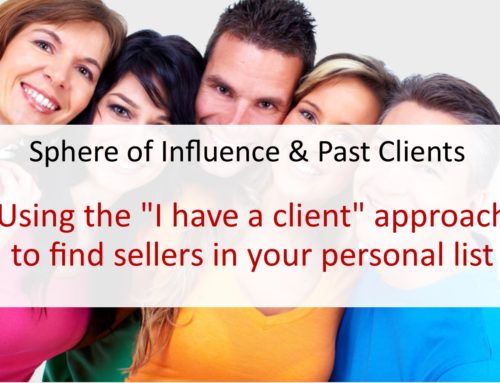
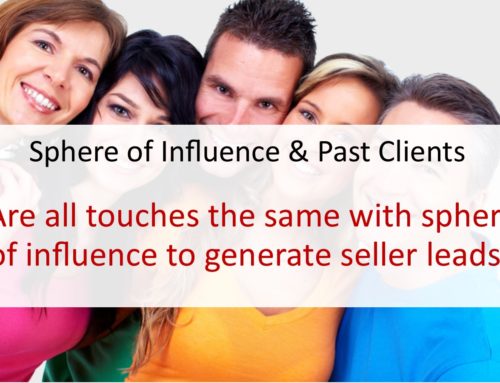

Leave A Comment